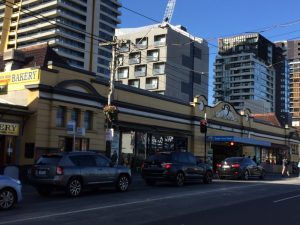A Brief Introduction to Business Structures – Trusts
A trust is a relationship between two or more persons and certain property and there must be specific property involved for the trust to be functional. The use of trusts was developed in the UK and is a common and way to separate legal and beneficial ownership of property. The following definitions help to explain how and why trusts are used:
 A ‘trustee’ is the legal owner of the trust property. There may be one or more trustees, individual or corporate trustees. The maximum number of trustees is generally limited to four by state or territory trust laws.
A ‘trustee’ is the legal owner of the trust property. There may be one or more trustees, individual or corporate trustees. The maximum number of trustees is generally limited to four by state or territory trust laws.
A ‘beneficiary’ is the party who obtains the benefit (income) from the trust property. There is no statutory provision capping the maximum number of beneficiaries, however, a single person (individual or corporate) cannot be both trustee and beneficiary.
A ‘deed’ is the relationship between a trustee, trust property and trust beneficiaries and is governed by specific terms. The terms should be set out in writing, generally in the form of a deed.
An ‘appointer’ is the person nominated by the deed of a trust to determine who shall be the trustee/s. That is, the appointer has the power to appoint a successor trustee, and may have the power to terminate the office of any trustee.
Forms of trust:
A Unit Trust is a trust under which the beneficiaries’ interest or share is expressed in terms of one or more ‘units’, under the terms of the trust deed. The ‘units’ are an equal measure of beneficial interest in the underlying property of the trust, and this is a relatively common form of business trust.
A Discretionary Trust is a trust in classic form, allowing the division of legal ownership in property from beneficial interest, where the trustee can determine how beneficial interest is distributed.
It allows the trustee the power to determine how much of the income or capital of the trust may be distributed.
Distribution of the trust income can occur: at the end of the last day of the income year (30 June); or at a time prescribed in the trust deed for making the distribution – whichever is earlier.
A Bare Trust: The trustee has legal ownership but not beneficiary ownership. The trustee of such a trust is exempt from lodging a tax return but the beneficiaries will be taxed on trust income.
A Fixed Trust is a trust where the present entitlement of the beneficiaries in the income and capital of the trust is fixed.
A Hybrid Trust is a unit trust that allows the trustee discretion in the distribution of the trust’s income and/or capital.
A Corporate Unit Trust is taxed as if it were a company.
A Public Trading Trust is a unit trust listed on the ASX which has more than 50 separate individuals or companies holding units, or has at least 20% of its units are owned by a tax exempt body or superannuation fund.